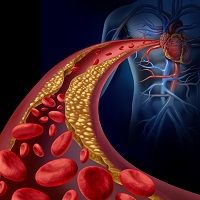Article
Using Older Drugs to Treat Metabolic Syndrome
Author(s):
Low-dose weekly chloroquine is lipid modulating, although to a smaller extent than high-dose therapy. Study results suggest that low-dose chloroquine is an inexpensive and well-tolerated agent for dyslipidemia patients.

The anti-malarial and immunomodulating agents chloroquine and hydroxychloroquine favorably impact lipoprotein metabolism, but need laboratory monitoring at treatment dosing. Worldwide, patients take these drugs safely at prophylactic doses without laboratory monitoring, however. Chloroquine, as a mild topoisomerase II inhibitor, can reduce atherosclerosis and cardiovascular risk by activating Ataxia Telangiectasia Mutated and in turn, growth suppressors p27 and p53.
The journal Diabetic Medicine published a study that shows chloroquine has a potential role in metabolic syndrome in its February 2016 issue.
This study used plasma samples gathered from patients who had fasted overnight in a trial of chloroquine for influenza prevention. The study included 277 normal weight (mean BMI=23.1) patients of Asian origin. Participants in one arm (n=134) took 300 mg chloroquine weekly for 11 weeks. Participants in the other (n-143) took placebo. The researchers used the homeostatic model assessment (HOMA) and its companion HOMA2 Oxford calculator to measure insulin resistance and beta-cell function.
At the study's end, the chloroquine group had 7% lower total cholesterol to HDL ratio, 5% lower LDL, and 11% lower triglycerides levels than the placebo group.
Patients had similar total cholesterol, HDL cholesterol, HOMA, glucose, and insulin levels regardless of the arm they were assigned to.
HOMA is intended to assess insulin-resistant patients, so the lack of statistically significant result does not confirm a lack of effect.
Elevated LDL cholesterol and triglyceride levels are associated with metabolic syndrome and are risk factors for cardiovascular disease. A previous study using high-dose hydroxychloroquine in lupus patients asserted that the lipid-lowering effect of chloroquine and hydroxychloroquine increases through at least 12 weeks of therapy.
These findings support the proposition that low-dose weekly chloroquine is lipid modulating, although to a smaller extent than high-dose therapy. The study authors propose that low-dose chloroquine is an inexpensive and well-tolerated agent for dyslipidemia patients.




